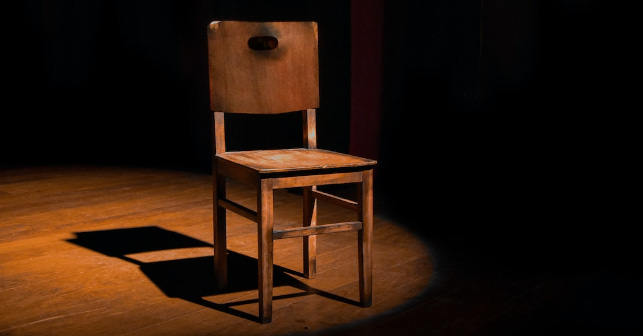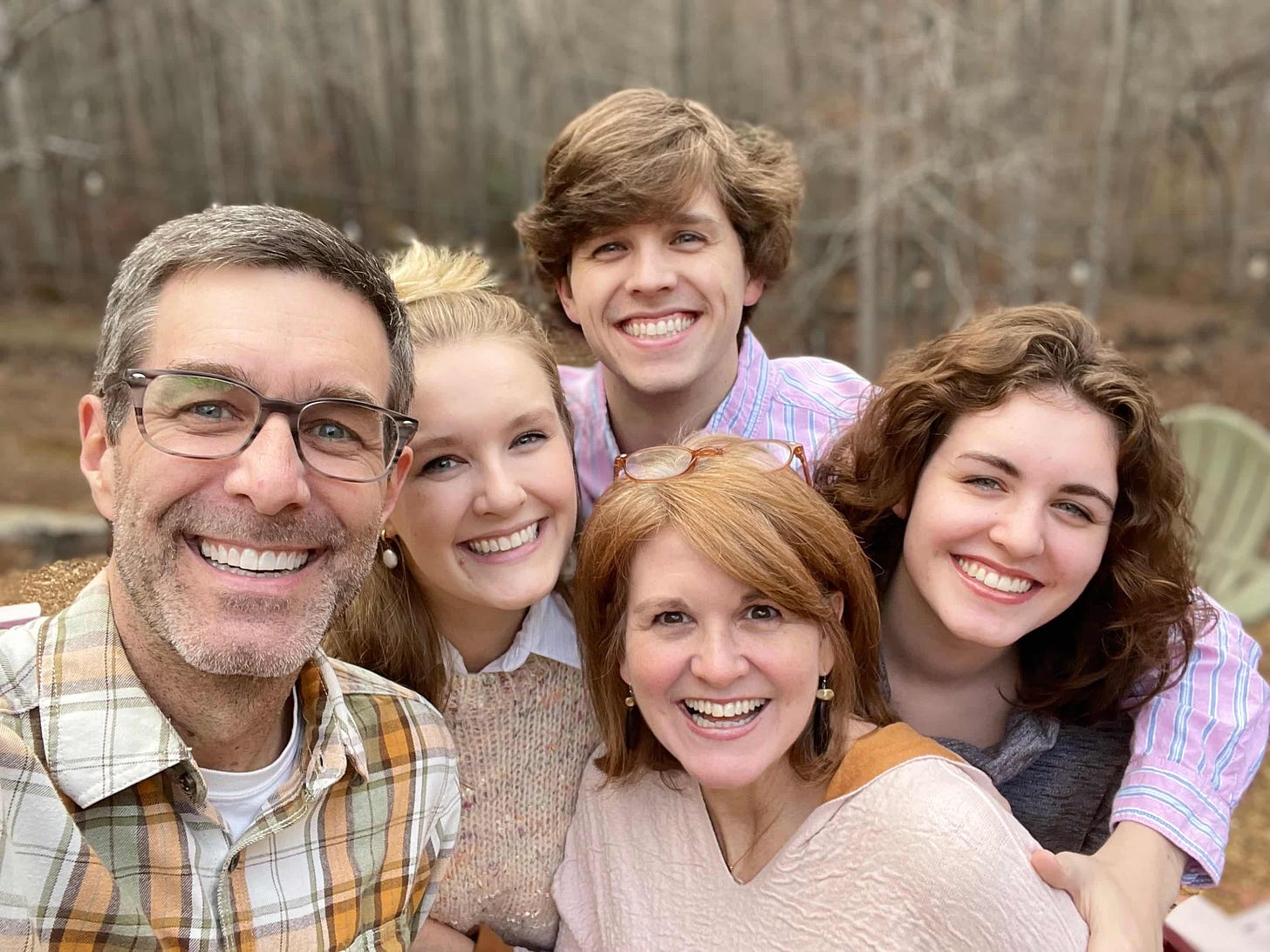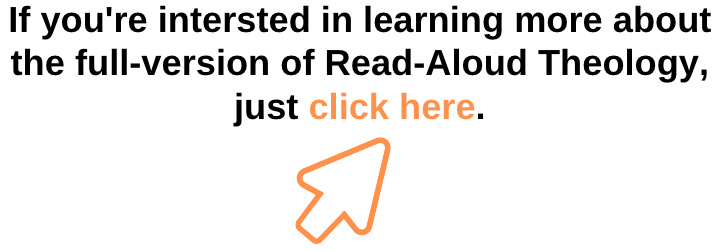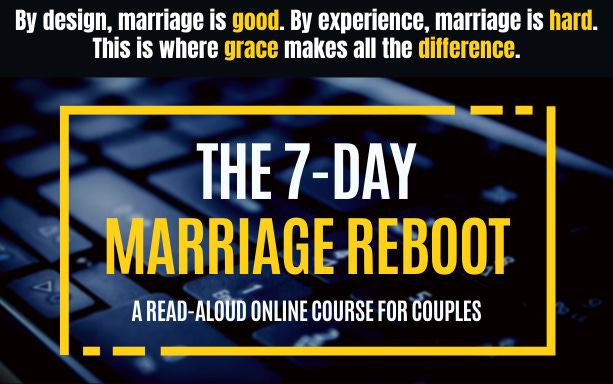This May be the Single Best Thing You Can Do for Your Kids
And it's not what you think.
Several years ago, the church I served changed insurance plans.
As part of the process, I had to take a blood test to check my glucose and cholesterol levels. While my glucose was fine, the test revealed my cholesterol number was over 250.
I was shocked! High cholesterol runs in my wife’s family, not mine.
I couldn’t believe that my numbers were so much higher than hers.
I had a bigger cholesterol problem!
In 1 Timothy 1:15, Paul says that he had a bigger sin problem than anyone else.
“This is a trustworthy saying, worthy of full acceptance: Christ Jesus came into the world to save sinners, of whom I am the worst.” — 1 Timothy 1:15
The worst? Certainly, this is false humility. Isn’t this Paul, the great missionary apostle? He should be the holiest of all people, right?
Nope.
Writing to Timothy around 64 AD, near the end of Paul’s life, he has gained tremendous insight into his human condition as a sinner who needs a Savior.
Paul doesn’t just need more theological information (as good and helpful as that is). Principles of morality can’t save him. Only the blood of a substitute being judged in his place as a propitiation for his sins could reconcile him to a holy God.
And get this. Describing his condition, Paul does not use the past tense but the present. It is not that he used to be a sinner who needed the mercy of God to save him. No…
He lived with a consuming trust in the present value of the blood of Jesus.
As the worst of sinners, he is saying, “If anyone is an example of a person who needs the medication of mercy for the scandal of sin, it is me—right now.”
Compared to everyone else, Paul claimed to be the bigger sinner.
Parents, this is what our children need to hear us say:
“I am the bigger sinner.”
That feels like a huge risk, doesn’t it?
How will my kids listen to and respect me if I let go of the moral high ground and confess to needing Jesus more than they do?
Aren’t I supposed to be the exemplary model of spiritual maturity and moral virtue?
Here’s the deal.
Our kids already know we’re big sinners. To act like we’re not makes us not only big sinners but big hypocrites.
Highlight this: Self-righteous parenting may get some results when our children are small but will backfire on us when they get older.
Why? They can see through the pretense.
While on spring break with my family one year, I decided it would be a good idea to limit social media engagement so we could enjoy some face time as parents and siblings. A revolutionary idea, right?
But rather than having a conversation about this with my kids, I just turned off the data on their phones.
On our way out to dinner, they inquired about why they couldn’t access Instagram. I acted surprised.
“Hmm… maybe we have poor cell coverage here.”
But they knew.
Eventually, I realized how deceitful I had been and sat them all down to confess my sin of deceit and control.
While turning off phone data isn’t a sin, lying about it was, primarily because it struck at the core of our relationship. I had broken trust. As a result, I was forced to sit in the big sinner chair and confess.
If you haven’t sat there, “the big sinner’s chair” feels like an executioner’s chair, because the chair of repentance is the place where my self-righteousness and moral high ground goes to die.
As someone has said, “If repentance doesn’t feel like death, it isn’t repentance.”
I’m convinced that one of the best things we can do for our children is to show them how to sit in the big sinner chair.
In fact, it may be that there is nothing that will be more positively influential in my kids’ lives than my repentance to them.
Seriously.
My most significant influence may not be when I get it right, but when I blow it and show them what it looks like to live by God’s mercy, knowing that Jesus sat in the executioner’s chair for me.
As Paul says, Jesus’ mission was “to save sinners.” Big sinners like me.
When you as a parent set the tone with your own repentance, you create a safe environment for your children to be honest about their struggles and sins.
And you show them the way to the cross.
As a pastor who wasn’t a pastor’s kid, I can only imagine the pressure of being looked upon by a congregation or classmates with an unfair standard of expectations that they somehow lost their sin nature by virtue of being the child of a holy man.
Ha!
The reality is that this supposedly holy man is a thoroughly sinful man who preaches about Jesus because he is in such desperate need for Jesus.
This should temper our temper when our children manifest Adam-like rebellion tendencies to our parental expectations. They are acting the way they act because they are our children. Remember, the apple doesn’t fall far from the tree.
Yes, we share the problem: a stubborn sin nature.
Now, with our own repentance, let’s show them the solution: a perfect Savior.
Discuss Together
How does Paul set the tone for leaders (and parents) seeing themselves as the bigger sinner in a relationship?
Why is being the bigger sinner so challenging? Why do we push back so hard?
Why is putting ourselves as parents in the sinner’s chair one of the most important things we can do for our children?
How can this contribute to moving from a parenting model of behavior modification to spiritual transformation?
The next collections in the hopper include Theology 101 and a complete Bible Overview.
✅ Of course, the best way to get a taste of how Read-Aloud Theology can help your family is by taking a free 7-day test drive.
🔓 This will unlock ALL the lessons and bonus resources. And you’ll receive new lessons every week.
🛑 You may easily cancel at any time.
🌟 When you subscribe, you’ll receive a welcome video that explains how to use the site and a link to two free, bonus resources (see below). Or just go to the Help Desk.
My deep desire is for these lessons to help your family come alive to the wonder, beauty, and transforming power of God’s grace in the crucified, risen, and reigning Jesus. 🙏
Yours, by grace alone,
McKay










